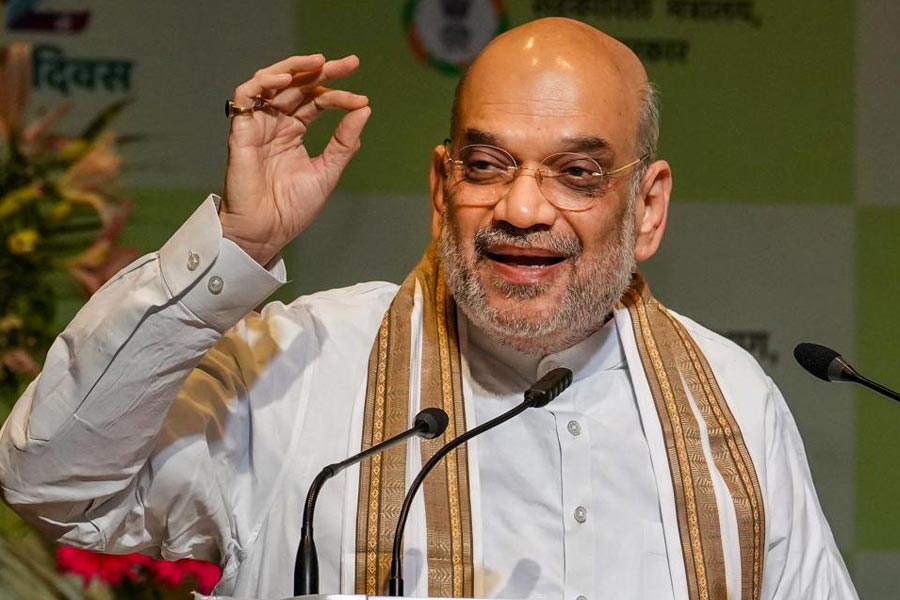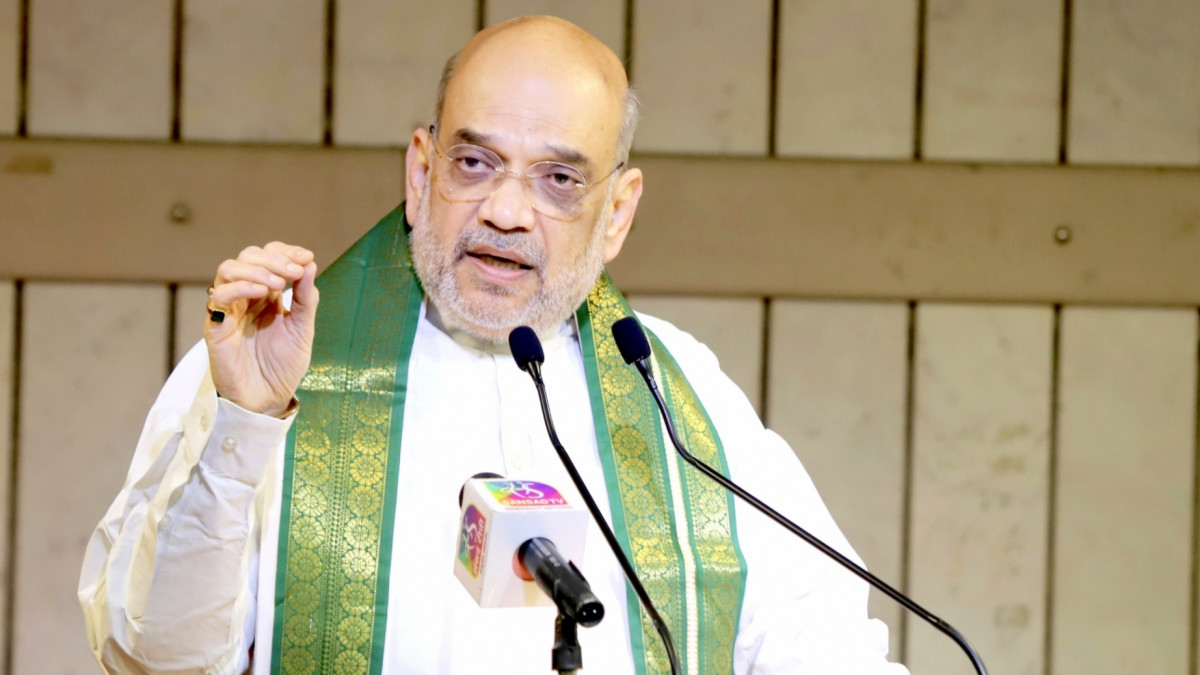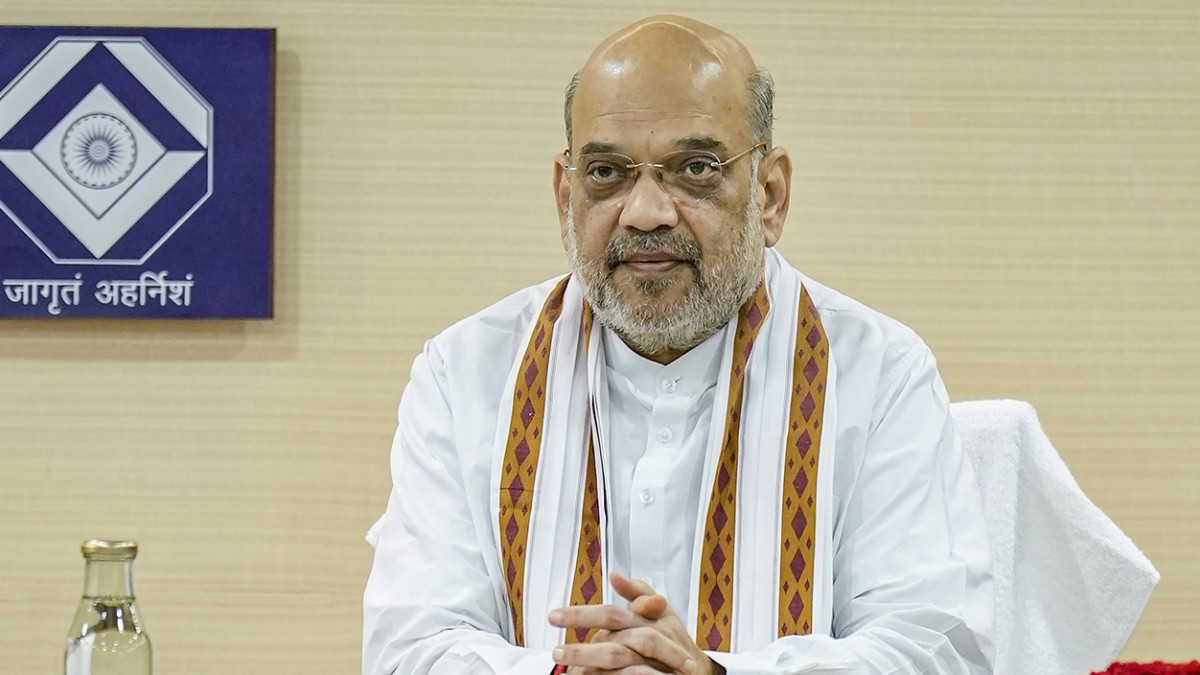Taking aim at the AAP, Shah claims that the party’s resistance to the bill originates from its “need to hide the truth of corruption,” and that Nehru was opposed to granting Delhi statehood. Union Home Minister Amit Shah defended the National Capital Territory of Delhi (Amendment) Bill on Thursday, saying that the “interest of the nation should not be sacrificed at the altar of alliance,” and that Prime Minister Narendra Modi’s return to power in 2024 was a “foregone conclusion.”

In launching a debate in Lok Sabha on the bill, which seeks to replace the NCT of Delhi (Amendment) Ordinance 2023, Shah poked the Congress by recalling Jawaharlal Nehru’s arguments against granting Delhi statehood in the Constituent Assembly. He also launched a scathing attack on Delhi’s ruling Aam Aadmi Party (AAP), claiming that its opposition to the bill stems from a “need to hide the truth of the corruption behind the bungalow,” referring to the controversy surrounding the construction of a sprawling new official residence for Delhi Chief Minister Arvind Kejriwal.
“The problem is not the transfer and postings. Rather it is about hiding the truth about the bungalow, and the acts of corruption, by getting the vigilance (department) under their (AAP) control,” Amit Shah stated. The ordinance, which went into effect on May 19, established a new statutory authority chaired by the Delhi Chief Minister and two IAS officers to rule on all matters pertaining to the transfer and posting of civil officials in the national capital by majority vote. It became a major source of contention between the AAP-led Delhi government and the BJP-led Centre, with Kejriwal attempting to rally opposition support to vote against the Bill. The Congress and the Trinamool Congress have both publicly criticized the ordinance.

According to the opposition, the law effectively nullifies a Supreme Court decision issued on May 11 that granted the Delhi government broader legislative and administrative control over “services.” Delhi is a Union territory with a legislative assembly, as a result of the 69th Constitutional Amendment Act, which included Articles 239AA and 239BB. Amit Shah said that the opinion that the measure invalidates the Supreme Court’s decision resulted from a “selective reading” of the court’s finding. According to Article 239AA(3)(b), the Parliament has the authority to legislate on any topic for Delhi, including all state and concurrent list subjects, he noted. “Some argued that the bill violates the SC order. I would like to tell them that you have read out the portion (of the SC order) that suited you. When you quote the order, you need to read the entire judgment transparently. The bill refers to paras 86, 95 and and particularly 164 f of the SC order that clearly state that the Parliament, under Article 239AA, has a right to legislate on any matter concerning Delhi,” he stated.
According to paragraph 164 f of the order, “the executive power of NCTD (National Capital Territory of Delhi) with respect to entries in List II (state) and List III (concurrent) shall be subject to the executive power expressly conferred upon the Union by the Constitution or by a law enacted by Parliament.” “In 2015, the situation changed here and a party formed a government which does not seek to serve the country, but indulge in squabbles only,” stated the interior minister. While the AAP, an offshoot of the India Against Corruption campaign, had relied on the Congress to establish a short-lived government in 2013, it achieved majority status for the first time in 2015, a feat it will repeat in 2020.

Amit Shah also used Nehru’s statements to illustrate his point, referring to the Congress leader’s resistance to the recommendations of the Pattabhi Sitaramayya Committee, which was constituted in 1947 to investigate the administrative structures of the Chief Commissioner’s Provinces, which included Delhi. He cited Nehru’s declaration in the Constituent Assembly that “ever since the committee was appointed the world has changed, India has changed and Delhi has changed vitally”.
The home minister emphasized that the Congress, in particular, should bear this in mind, saying that once the bill is passed by the House, the AAP will no longer be a member of any opposition alliance. In any event, he stressed, efforts to build an alliance should not influence a party’s position on the bill. “There are many ways to form an alliance. But, bills and laws are for the country’s good. So supporting and opposing them should be done keeping the country’s and Delhi’s interests in mind. It should not be the line of thinking that we will support (the AAP) for the sake of alliance no matter how much corruption they indulge in, or how many crores are spent to build their CM’s bungalow,” he mentioned.









